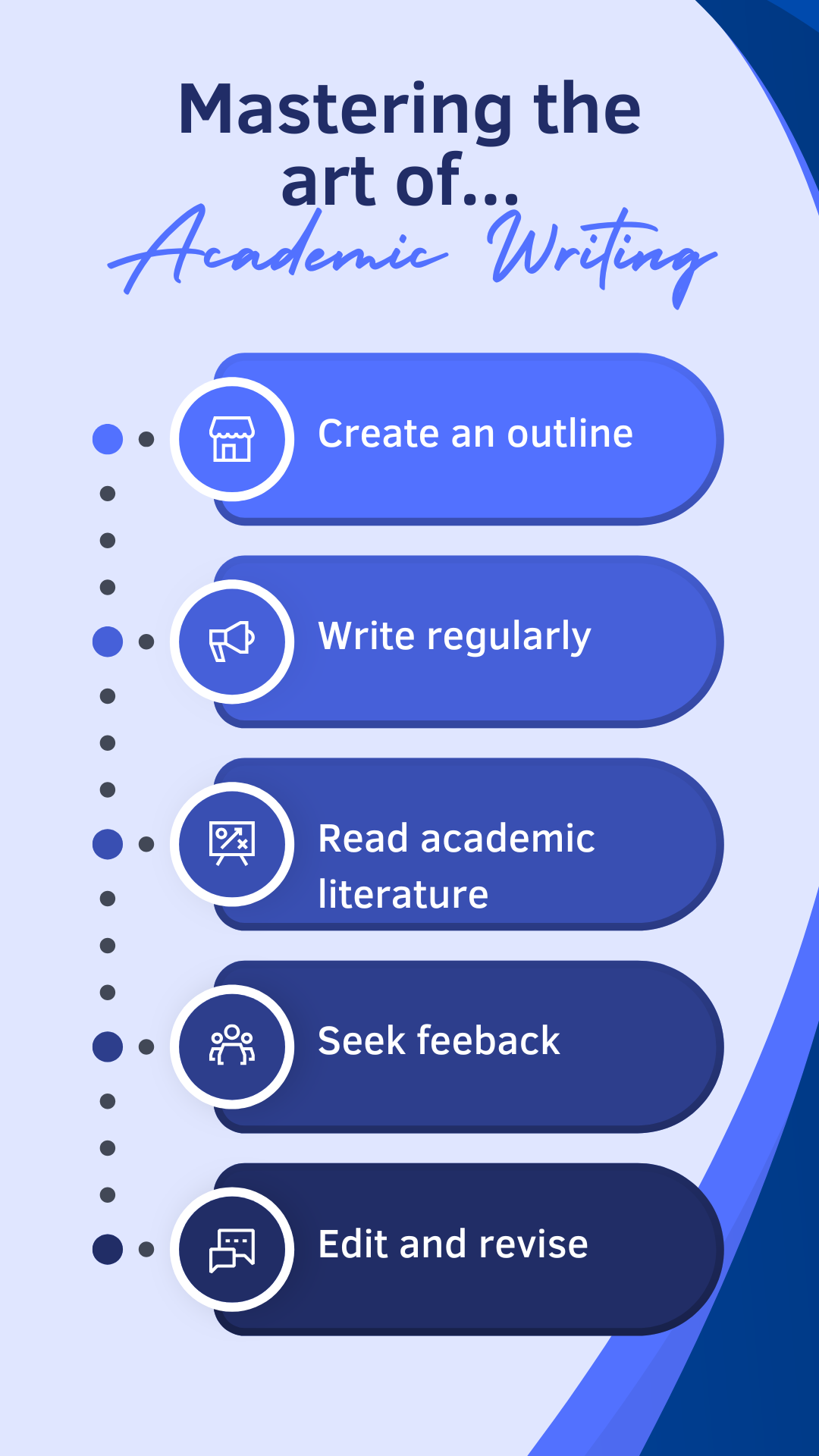Academic writing is a skill that often feels intimidating to students, especially when it comes to crafting a dissertation. The good news is that with practice and the right guidance, you can master this essential skill. In this post, we will explore the key elements of academic writing, provide practical tips for improving your writing, and discuss how academic coaching can support you on your journey to becoming a confident writer.
Understanding Academic Writing
Academic writing is a formal style of writing used in universities and scholarly publications. It’s characterized by a clear structure, evidence-based arguments, and a focus on precision and clarity. Unlike creative writing, which may embrace ambiguity, academic writing demands a logical flow of ideas and adherence to specific guidelines.
Key Elements of Academic Writing
1. Clarity: Your writing should be clear and concise. Avoid jargon and overly complex sentences that can confuse your readers.
2. Structure: A well-structured paper includes an introduction, body paragraphs, and a conclusion. Each section serves a specific purpose and helps guide the reader through your argument.
3. Argumentation: Your writing should present a coherent argument supported by evidence. This includes citing credible sources and using logical reasoning.
4. Formal Tone: Academic writing typically employs a formal tone. This means avoiding slang, contractions, and overly casual language.
5. Citations: Properly citing your sources is crucial in academic writing. It not only gives credit to the original authors but also strengthens your own argument by providing evidence.
Tips for Improving Your Academic Writing
Tip 1: Create an Outline
Before you start writing, create a detailed outline of your paper. This will help you organize your thoughts and ensure that your argument flows logically. An outline serves as a roadmap for your writing, making it easier to stay on track.
Tip 2: Write Regularly
The more you practice writing, the better you’ll become. Set aside dedicated time each week to work on your writing. This can be as simple as jotting down ideas, drafting sections of your dissertation, or even journaling about your research experiences.
Tip 3: Read Academic Literature
Reading academic papers in your field can enhance your understanding of academic writing conventions. Pay attention to how authors structure their arguments, present evidence, and cite their sources. This exposure can help you develop your own writing style.
Tip 4: Seek Feedback
Feedback is essential for improvement. Share your writing with peers, mentors, or your academic coach to gain constructive criticism. Be open to suggestions and use the feedback to refine your work.
Tip 5: Edit and Revise
Don’t underestimate the power of editing. After completing your first draft, take time to revise your work. Look for areas where you can improve clarity, coherence, and conciseness. Consider reading your paper aloud to catch awkward phrasing or grammatical errors.

Overcoming Common Writing Challenges
Many students face challenges when it comes to academic writing. Here are some common obstacles and tips for overcoming them:
– Writer’s Block: If you find yourself staring at a blank page, try free writing for 10 minutes. Write anything that comes to mind about your topic; this can help spark ideas.
– Perfectionism: It’s easy to get caught up in wanting everything to be perfect on the first try. Remember that writing is a process; allow yourself to create rough drafts and refine them later.
– Time Management: Balancing writing with other academic responsibilities can be tough. Create a writing schedule that includes short, focused writing sessions. This will make the task feel more manageable.
How Academic Coaching Can Support You
If you’re struggling with academic writing, consider working with an academic coach. Coaches provide personalized support tailored to your specific needs, helping you develop your writing skills, improve your argumentation, and enhance your overall academic performance. With their guidance, you can transform your writing from a source of stress into a rewarding part of your dissertation journey.
Conclusion
Mastering academic writing is crucial for your success in completing your dissertation. By understanding the key elements of academic writing, applying practical tips, and seeking support through coaching, you can enhance your writing skills and boost your confidence. Remember, writing is a journey, and every step you take brings you closer to your academic goals.